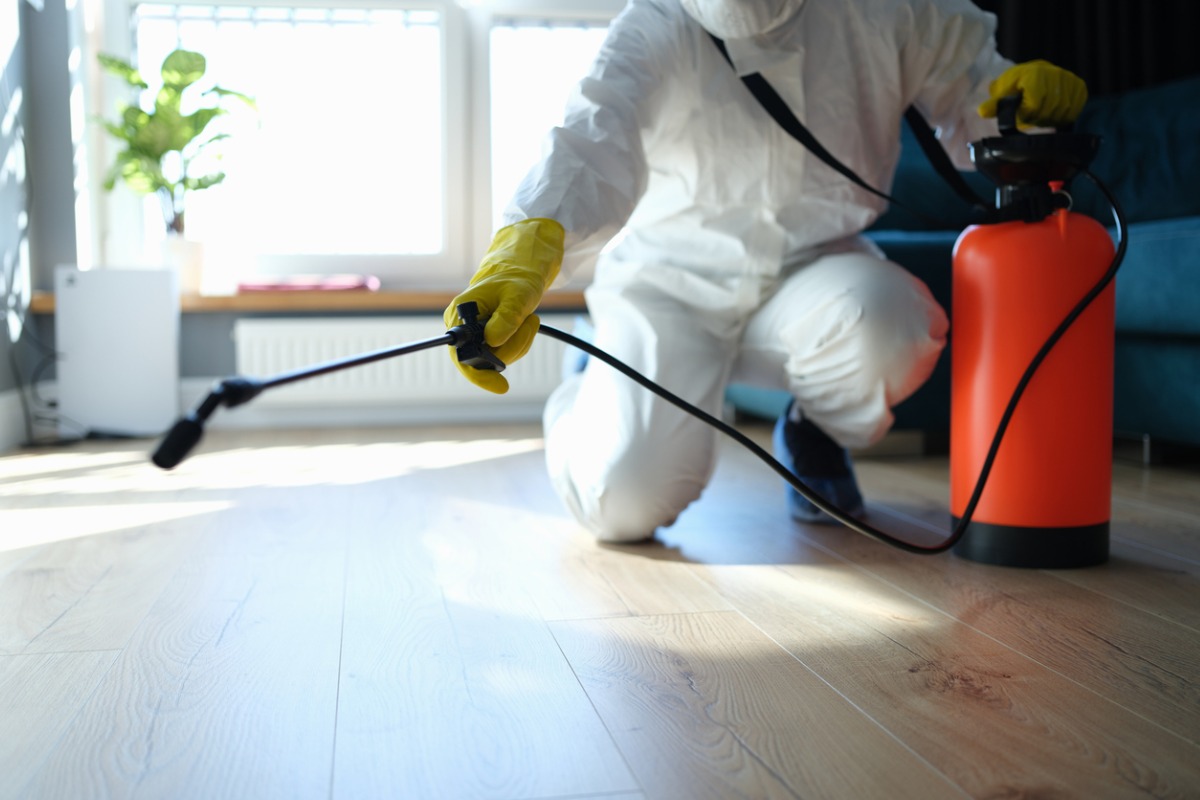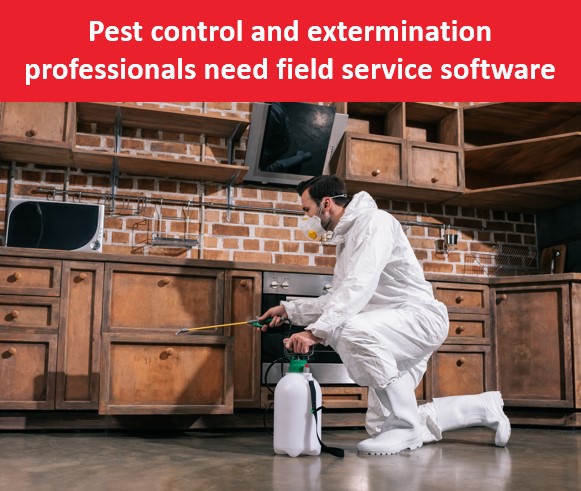Safe and Trusted Bug Control for Lasting Defense
The significance of safe and reliable pest control can not be overstated, particularly in an era where environmental concerns are vital. Efficient bug monitoring requires a diverse approach that balances ecological integrity with the requirement for reliable bug reductions. By discovering environmentally friendly remedies and integrated bug monitoring techniques, property owners can achieve long lasting protection versus invasive types while safeguarding helpful environments. The nuances of these methods may not be right away clear, motivating a more detailed exam of the practices that can lead to lasting pest control end results. What actions can be required to make sure both security and efficacy in pest administration?
Understanding Bug Control Approaches
Parasite control encompasses a variety of approaches targeted at handling and eliminating unwanted pests and rodents that can threaten both wellness and property. Recognizing these techniques is crucial for reliable insect monitoring.
The key groups of insect control approaches consist of mechanical, biological, and chemical approaches. Mechanical techniques involve physical obstacles and catches to stop insect entry and capture undesirable species. Utilizing screens on home windows or utilizing sticky traps can dramatically decrease pest populaces without introducing unsafe materials - exterminator coquitlam.

Chemical pest control is commonly the most identified technique, using chemicals to remove insects. These chemicals can be efficient but need to be utilized with care to stay clear of adverse effects on non-target types and the setting.
Benefits of Eco-Friendly Solutions
Just how can environment-friendly services transform pest control practices? The adoption of environmentally friendly insect control techniques provides many benefits, substantially improving the effectiveness and security of parasite management.

An additional advantage is the positive influence on neighborhood biodiversity. Environmentally friendly solutions are designed to target specific bugs while protecting beneficial insects and wildlife, advertising a balanced environment. This technique straightens with the expanding consumer need for lasting practices, boosting the reputation of parasite control suppliers.
Integrated Bug Administration Approaches
The application of environmentally friendly remedies normally brings about the fostering of Integrated Insect Management (IPM) strategies, which better boost bug control efficiency. IPM is an alternative technique that integrates several tactics to manage parasite populaces while decreasing ecological influence. This method emphasizes making use of organic, social, mechanical, and chemical controls, guaranteeing a sustainable and balanced technique of parasite monitoring.
One essential aspect of IPM is the thorough analysis of insect task and environmental conditions. By keeping an eye on insect populaces and determining their life cycles, experts can carry out targeted interventions that interrupt the parasite's habitat or lifecycle, reducing dependence on chemical pesticides. Additionally, social techniques such as plant turning and environment control can significantly reduce pest establishment and reproduction.
One more crucial component is using organic control representatives, such as advantageous pests or bacteria, which can naturally suppress insect populaces. When chemical applications are needed, IPM focuses on using low-risk pesticides and uses them uniquely, reducing direct exposure to non-target microorganisms and human beings.
Incorporating IPM methods not just improves parasite control effectiveness yet likewise advertises a more secure ecosystem, aligning with the see this here growing demand for sustainable practices in parasite management.
Safe Practices for Home Owners
Recognizing the importance of risk-free practices in insect control can empower home owners to successfully handle parasite problems while securing their health and wellness and the atmosphere. Carrying out non-toxic methods and safety nets is critical in minimizing exposure to dangerous chemicals.
Home owners need to initially examine their atmosphere for problems that attract pests, such as standing water, mess, and food waste. Routinely cleansing and sealing access points can hinder bugs from getting into the home. Using natural deterrents, such as crucial oils or diatomaceous earth, can give effective choices to chemical pesticides.
When chemical treatments are essential, house owners should go with products that are especially identified as risk-free for household use. It is necessary to follow application standards diligently to Website prevent overexposure. In addition, making use of targeted treatments in locations where parasites are recognized, instead of blanket spraying, can considerably reduce chemical use.
Finally, preserving open interaction with pest control experts is essential. Homeowners ought to ask about the safety of products made use of and demand environment-friendly options whenever possible. By embracing these secure methods, house owners can develop a healthier living environment while successfully taking care of parasite concerns.

Tips for Long-Term Defense
Establishing a bug monitoring method that stresses lasting defense can substantially boost the efficiency of the risk-free methods previously talked about. To accomplish this, property owners should apply normal evaluations of their home, focusing on hidden areas such as attics, cellars, and crawl spaces. Early detection of bug activity is critical in stopping problems from holding.
These practices minimize attractants that attract bugs right into the home. Sealing access points, such as cracks around doors and windows, can successfully block possible bug gain access to.
Landscaping must additionally be considered; keeping plants cut and keeping a range in between insect control greenery and the home reduces hiding places for parasites. Using all-natural deterrents, such as essential oils or diatomaceous earth, can better prevent infestations without turning to severe chemicals.
Finally, collaborating with an expert insect control solution for regular analyses can supply an added layer of protection. These professionals can provide tailored suggestions and advanced therapies, making certain that your home continues to be shielded versus pests in the long-term.
Verdict
In final thought, reputable and secure insect control requires a diverse method that emphasizes environmentally friendly methods and integrated parasite management. By executing natural deterrents, conducting routine inspections, and maintaining proper cleanliness, residential or commercial property owners can dramatically lower bug populaces while securing valuable pests and the setting. Cooperation with professional insect control services enhances the effectiveness of these techniques, making sure tailored options that give enduring protection and comfort versus future infestations.
Effective insect management requires a diverse technique that balances eco-friendly honesty with the demand for reliable bug reductions. The adoption of green bug control methods offers many benefits, substantially boosting the performance and safety and security of parasite administration.The application of green services naturally leads to the fostering of Integrated Parasite Administration (IPM) strategies, which even more enhance bug control efficiency. exterminator coquitlam. By keeping an eye on parasite populaces and recognizing their life cycles, practitioners can execute targeted treatments that interfere with the pest's environment or lifecycle, minimizing dependence on chemical pesticides.In final thought, dependable and safe insect control calls for a multifaceted technique that stresses environment-friendly methods and incorporated parasite administration